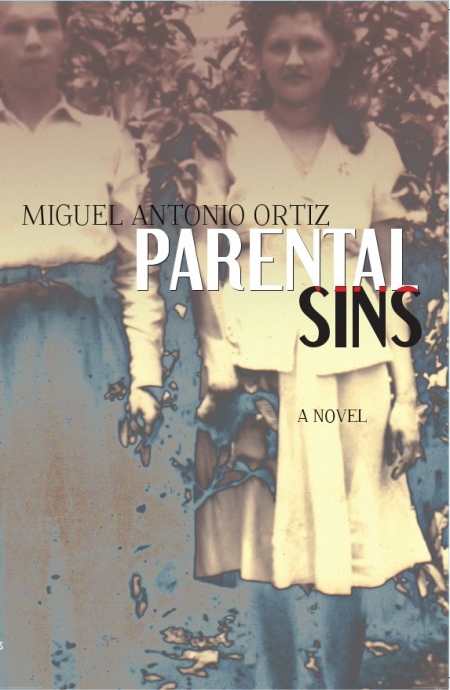Parental Sins
Motifs of Eden and the apple preach themes of fate, desire, and the unavoidability of sin.
In Parental Sins, guilt is a monster that cannot be slain, only appeased. And sin comes back to bite you.
The story follows two families from Puerto Rico, “a window into another world where the primitive existed.” Drawing on folkloric traditions, Miguel Antonio Ortiz explores themes of sin and salvation, guilt and atonement, betrayal and forgiveness. The story seems to take place in some once-upon-a-time rather than in actual times. For instance, we do not learn where the town of Naranjito is, or even what year it is, until chapter twelve, when the American invasion of Puerto Rico is mentioned. In fact, the lush mountainous land is purposely evoked to be an Eden from which Federico and Julia, like Adam and Eve, are expelled for their sins.
At first, the characters and motifs seem simple and archetypal: dutiful daughters, wayward sons, faithless husbands, injured wives. Ramona Soto is downright allegorical: “A beautiful young woman with a long life to look forward to was expected to be cheerful.”
The language borders on fairy-tale: “Her wish granted, her first child was a boy,” or “Four years elapsed after Fate, at the Christopher Columbus Society Dance, assured him that he would marry Ramona.” There are prohibitions and breaking of prohibitions, with all the pain and suffering that entails: men are duped, children engendered, women deserted.
Everyone has good intentions, but since sin is “impossible to avoid,” all they can do is resist it or atone for it. They take in children not their own. They flee in an effort to put their past behind them. They look for signs of heavenly forgiveness. But time and again, “desire overwhelms reason, a dilemma of everyday life.” By the time they have moved to America, the sins of the past catch up to them. They are not in control of destiny. The parents are plagued by guilty consciences. They scheme and then pay for their sins, setting up senseless repetitions in the next generation.
Originally from Puerto Rico, Miguel Antonio Ortiz lives in Brooklyn and is the author of two previous novels. By turns philosophical and metaphorical, he manages to poke fun at “the viability of sin” while considering what it means to have inherited from our original parents “the guilt that requires having to expiate time and again the crime of having eaten the apple.”
Reviewed by
Trina Carter
Disclosure: This article is not an endorsement, but a review. The publisher of this book provided free copies of the book to have their book reviewed by a professional reviewer. No fee was paid by the publisher for this review. Foreword Reviews only recommends books that we love. Foreword Magazine, Inc. is disclosing this in accordance with the Federal Trade Commission’s 16 CFR, Part 255.

